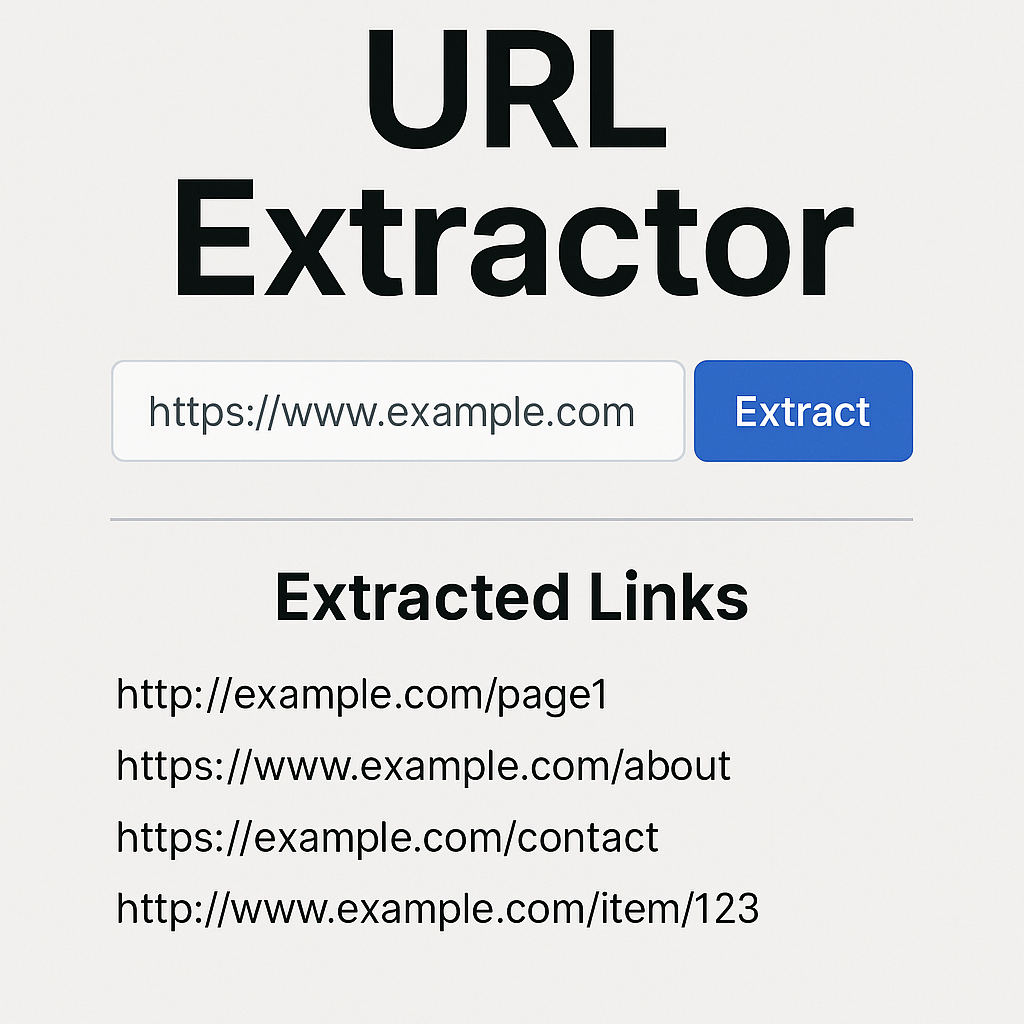
URL extractor
Created on 1 October, 2025 • Text Tools • 55 views • 2 minutes read
A URL Extractor is a powerful tool that helps you quickly collect all links from any webpage, text, or document. It is widely used in SEO, digital marketing, research, and data collection to save time and improve efficiency. With automated URL extraction,
URL Extractor – Extract Links from Any Webpage EasilyA URL Extractor is a powerful online tool or software designed to automatically extract all hyperlinks (URLs) from a given webpage, document, or text. Whether you are a digital marketer, SEO professional, or researcher, extracting URLs can save time and streamline tasks like link analysis, web scraping, and competitor research.
In this guide, we will explore what a URL extractor is, how it works, its benefits, and the best use cases for businesses and individuals.
What is a URL Extractor?
A URL extractor is a tool that scans webpages, files, or raw text to identify and collect all the links present within the content. These tools can work on:
Web pages (HTML)
PDFs and documents
Plain text files
Source code
The output is usually a clean list of extracted URLs, which can be exported for further analysis or reporting.
How Does a URL Extractor Work?
Most URL extractors operate using web crawlers or pattern recognition techniques such as:
Regex (Regular Expressions) – Scans text for link patterns like http:// or https://.
HTML Parsing – Reads the HTML source code and pulls out links.
API-based Extraction – Some advanced tools use APIs to fetch structured link data.
These methods ensure that no important link is missed, even hidden or embedded ones.
Benefits of Using a URL Extractor
Using a URL extractor provides several advantages:
1. SEO and Link Building
Marketers can extract competitor backlinks, analyze outbound links, or find broken links on a site to improve SEO strategies.
2. Web Scraping and Data Collection
Researchers can gather URLs from multiple sources quickly without manual copy-paste.
3. Content Audits
Webmasters can extract all internal links to check for duplication, errors, or optimization opportunities.
4. Time-Saving Automation
Instead of scanning content manually, a URL extractor automates the process in seconds.
Use Cases of a URL Extractor
A URL extractor tool is useful in many scenarios:
Digital Marketing – Find competitor landing pages and content links.
Academic Research – Extract references and sources from documents.
Data Mining – Gather URLs for AI training or dataset building.
Website Maintenance – Identify broken or outdated links.
Choosing the Best URL Extractor Tool
When selecting a URL extractor, consider these factors:
Speed and Accuracy – How fast it processes data.
Bulk Extraction – Ability to handle multiple pages at once.
Export Options – Support for CSV, Excel, or JSON.
Compatibility – Works on various file formats and websites.
Some popular tools include online web-based extractors, browser extensions, and standalone desktop software.
Conclusion
A URL extractor is an essential tool for SEO experts, content managers, and researchers who deal with large volumes of data. It simplifies link collection, improves productivity, and helps in effective decision-making. By automating the process of extracting URLs, you can focus more on strategy and less on manual work.
Using a reliable URL extractor ensures accuracy, efficiency, and scalability—making it a must-have in the digital world.
Popular posts
-
Barcode readerMisc Tools • 160 views
-
Color pickerMisc Tools • 122 views
-
Exif readerMisc Tools • 117 views
-
SHA-256 generatorGenerator tools • 93 views
-
Ip LookupChecker Tools • 90 views